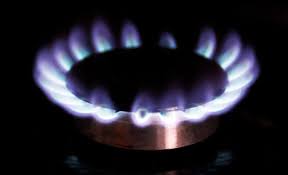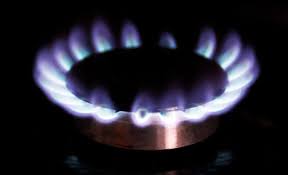
Europe may face an even worse energy crisis next year after draining its natural gas tanks to get through this winter's cold, according to the head of the International Energy Agency on Wednesday, as the EU seeks ways to alleviate the crisis.
After Russia cut gas supplies in response to Western sanctions imposed over its invasion of Ukraine, European countries filled storage tanks to roughly 90 per cent capacity.
Gas prices have fallen after skyrocketing in the months following the February invasion. However, this could be short-lived as countries compete to buy LNG and other alternatives to Russian pipeline deliveries.
To alleviate the pain, the European Union is considering a gas price cap, which has divided the 27-nation bloc because some countries fear it will make securing supplies more difficult.
"With gas storages almost at 90%, Europe will survive the coming winter with just some bruises as long as there are no political or technical surprises," said Fatih Birol, executive director of the Paris-based IEA.
The real challenges for Europe, which has traditionally relied on Russia for around 40% of its natural gas, will begin in February or March, when storage must be replenished after high winter demand has depleted it to 25 per cent to 30 per cent.
"This winter is difficult but next winter may also be very difficult," Birol told journalists in Finland.
European governments have taken steps to protect consumers from the impact of rising prices, and Germany announced on Wednesday that it will subsidize power bills next year by paying just under 13 billion euros ($12.8 billion) toward usage fees levied by the four high-voltage transmission grid companies (TSOs).
The fees are included in electricity bills and account for about 10 per cent of total costs for retail customers and one-third for industrial companies in industries such as steel or chemicals.
Berlin's intervention stabilizes the fees, which would otherwise have tripled due to runaway wholesale power prices and rising operational costs for the TSOs, according to Germany's Economy Minister Robert Habeck.
Until the Ukraine war broke out in late February, the Nord Stream 1 pipeline from Russia to Germany beneath the Baltic Sea was one of Western Europe's main sources of gas.
Nord Stream 1 is made up of two separate lines, as is Nord Stream 2, which was filled with gas but never allowed to deliver supplies to Europe because Germany suspended approval just before Russia invaded Ukraine on February 24.
Three of the four lines have been disabled by what the West and Russia claim was sabotage, resulting in massive leaks, and the Danish authorities said on Tuesday that the fourth was being depressurised.
President Vladimir Putin blamed the US and its allies on Friday, which Washington denied. Russia has condemned "stupid" Western theories that it sabotaged the pipelines with explosions last week.
On Wednesday, the Kremlin stated that Russia must be involved in the investigations, while one of Putin's allies recalled the US Central Intelligence Agency-backed attacks on oil infrastructure in Nicaragua in 1983.
Ursula von der Leyen, President of the European Commission, stated that EU countries must strengthen their critical infrastructure protection by conducting stress tests and using satellite surveillance to detect potential threats.
She was speaking in the European Parliament ahead of a meeting of EU leaders in Prague on Friday to discuss the EU price cap plan.
The details have yet to be worked out, but the majority of countries that see it as a way to combat inflation support the idea. However, Germany, Denmark, and the Netherlands have expressed concern that it will make it more difficult to secure supplies.
In her speech, Von der Leyen stated that countries should begin buying gas together in order to avoid EU member states bidding against each other on global markets, driving prices even higher.
Earlier, tensions in the gas market had eased as Russia's energy company Gazprom resumed gas exports to Italy via Austria on Wednesday after resolving a guarantee issue that had caused the suspension of flows over the weekend.
However, Russia's Deputy Prime Minister Alexander Novak said on Wednesday that the country may reduce oil production to offset the negative effects of price caps imposed by the West in response to Moscow's actions in Ukraine.
The Group of Seven wealthy nations' agreed-upon price cap plan calls for participating countries to deny insurance, finance, brokerage, navigation, and other services to oil cargoes priced above a yet-to-be-determined price cap on crude and oil products.
(Source:www.latestly.com)
After Russia cut gas supplies in response to Western sanctions imposed over its invasion of Ukraine, European countries filled storage tanks to roughly 90 per cent capacity.
Gas prices have fallen after skyrocketing in the months following the February invasion. However, this could be short-lived as countries compete to buy LNG and other alternatives to Russian pipeline deliveries.
To alleviate the pain, the European Union is considering a gas price cap, which has divided the 27-nation bloc because some countries fear it will make securing supplies more difficult.
"With gas storages almost at 90%, Europe will survive the coming winter with just some bruises as long as there are no political or technical surprises," said Fatih Birol, executive director of the Paris-based IEA.
The real challenges for Europe, which has traditionally relied on Russia for around 40% of its natural gas, will begin in February or March, when storage must be replenished after high winter demand has depleted it to 25 per cent to 30 per cent.
"This winter is difficult but next winter may also be very difficult," Birol told journalists in Finland.
European governments have taken steps to protect consumers from the impact of rising prices, and Germany announced on Wednesday that it will subsidize power bills next year by paying just under 13 billion euros ($12.8 billion) toward usage fees levied by the four high-voltage transmission grid companies (TSOs).
The fees are included in electricity bills and account for about 10 per cent of total costs for retail customers and one-third for industrial companies in industries such as steel or chemicals.
Berlin's intervention stabilizes the fees, which would otherwise have tripled due to runaway wholesale power prices and rising operational costs for the TSOs, according to Germany's Economy Minister Robert Habeck.
Until the Ukraine war broke out in late February, the Nord Stream 1 pipeline from Russia to Germany beneath the Baltic Sea was one of Western Europe's main sources of gas.
Nord Stream 1 is made up of two separate lines, as is Nord Stream 2, which was filled with gas but never allowed to deliver supplies to Europe because Germany suspended approval just before Russia invaded Ukraine on February 24.
Three of the four lines have been disabled by what the West and Russia claim was sabotage, resulting in massive leaks, and the Danish authorities said on Tuesday that the fourth was being depressurised.
President Vladimir Putin blamed the US and its allies on Friday, which Washington denied. Russia has condemned "stupid" Western theories that it sabotaged the pipelines with explosions last week.
On Wednesday, the Kremlin stated that Russia must be involved in the investigations, while one of Putin's allies recalled the US Central Intelligence Agency-backed attacks on oil infrastructure in Nicaragua in 1983.
Ursula von der Leyen, President of the European Commission, stated that EU countries must strengthen their critical infrastructure protection by conducting stress tests and using satellite surveillance to detect potential threats.
She was speaking in the European Parliament ahead of a meeting of EU leaders in Prague on Friday to discuss the EU price cap plan.
The details have yet to be worked out, but the majority of countries that see it as a way to combat inflation support the idea. However, Germany, Denmark, and the Netherlands have expressed concern that it will make it more difficult to secure supplies.
In her speech, Von der Leyen stated that countries should begin buying gas together in order to avoid EU member states bidding against each other on global markets, driving prices even higher.
Earlier, tensions in the gas market had eased as Russia's energy company Gazprom resumed gas exports to Italy via Austria on Wednesday after resolving a guarantee issue that had caused the suspension of flows over the weekend.
However, Russia's Deputy Prime Minister Alexander Novak said on Wednesday that the country may reduce oil production to offset the negative effects of price caps imposed by the West in response to Moscow's actions in Ukraine.
The Group of Seven wealthy nations' agreed-upon price cap plan calls for participating countries to deny insurance, finance, brokerage, navigation, and other services to oil cargoes priced above a yet-to-be-determined price cap on crude and oil products.
(Source:www.latestly.com)





